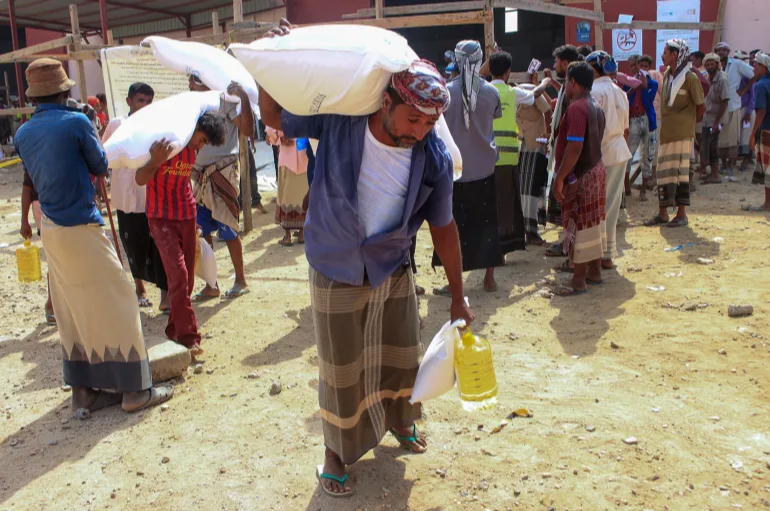The United Nations has called for $4.3 billion to help millions of people in Yemen, where an eight-year war has left millions in urgent need of urgent aid. The appeal on Monday comes before a donors’ conference, with UN officials warning that “record global humanitarian needs are stretching donor support like never before”.
“But without sustained support for the aid operation in Yemen, the lives of millions of Yemenis will hang in the balance, and efforts to end the conflict once and for all will become even more challenging,” the organisation said in a statement.
Wide swathes of Yemen are facing food shortages, with areas of the Marib governorate facing crisis levels and the situation in the northern Hajja governorate expected to worsen given “expectations for gradually re-escalating conflict and large populations of displaced households who are highly dependent on assistance”, according to the US-funded Famine Early Warning Systems Network (FEWS).
The monitor cited the high price of electricity, fuel and gas prices driven by threats related to the ongoing conflict, which has largely remained in a state of “unofficial ceasefire” since a UN-brokered truce expired in October of 2022.
Houthi rebels seized the capital, Sanaa, and overthrew the internationally-recognised government of President Abd-Rabbu Mansour Hadi in 2014. Shortly after, Saudi Arabia and the United Arab Emirates (UAE) launched a military coalition in support of Hadi.
Eight years of fighting have left hundreds of thousands of people dead, at least 4.3 million people internally displaced, and two-thirds of the country’s population of nearly 33 million in need of humanitarian aid.
The aid community has regularly referred to it as the world’s worst humanitarian crisis. The most recent truce, which began in April 2022, had raised hopes of a lasting peace, but Houthis, who remain in control of much of northeastern Yemen, refused to agree to a further extension.
In January, the UN Office for the Coordination of Humanitarian Affairs (OCHA) warned, “In the absence of a comprehensive political settlement, continued displacement, the economic situation, and lack of capacity of state institutions, are likely to remain a key driver of needs.”


